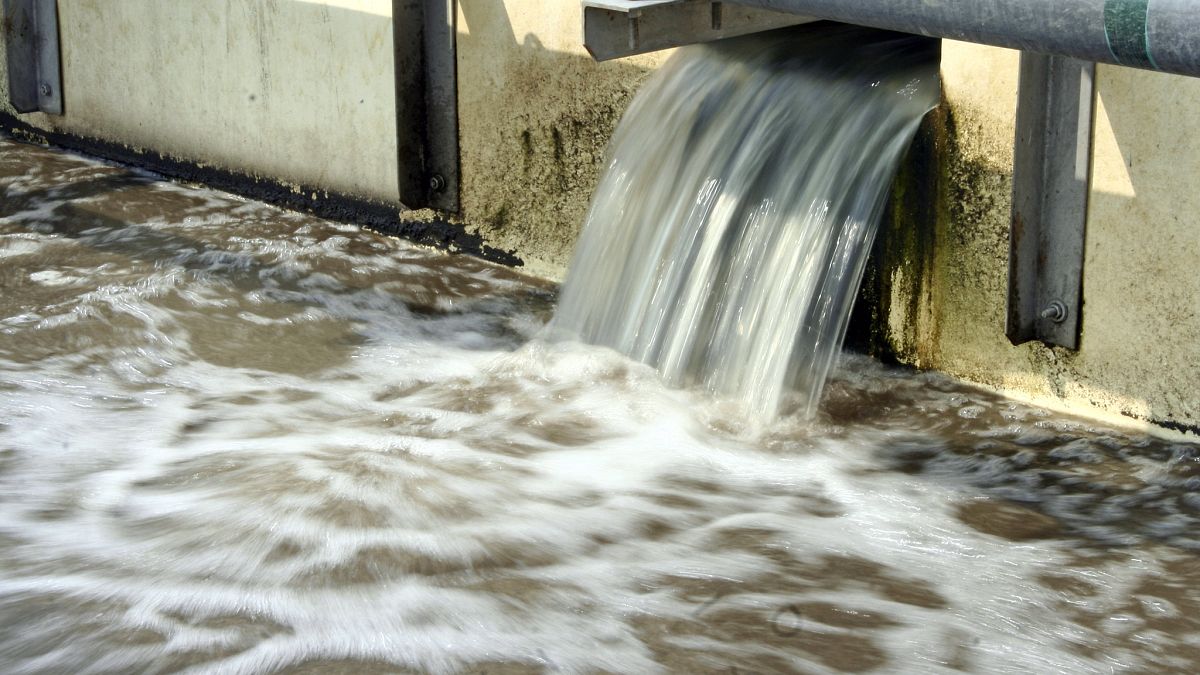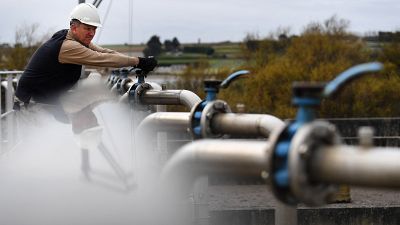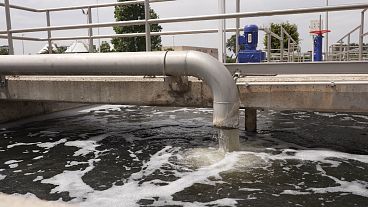‘Polluter pays’ principle mandates key industries to take responsibility for spreading micropollutants.
The pharmaceutical and cosmetics industries will have to bear at least 80% of the costs linked to cleaning harmful substances they discharge into urban wastewater, following an inter-institutional agreement reached in Brussels on January 29.
The two industries are jointly responsible for 92% of the toxic load in wastewaters, the European Commission maintained when launching its legislative proposal in October 2022.
The new EU bill on the Urban Wastewater Treatment will "completely revolutionise" wastewater treatment, as the ‘polluter pays' principle — the Extended Producer Responsibility (EPR) — will apply for the first time, environment commissioner Virginijus Sinkevičius said. This means that polluting industries will cover the costs of additional treatment, the so-called quaternary treatment, to remove micro-pollutants from urban wastewater.
By 2045, EU countries will need to guarantee the application of quaternary treatment in larger plants, serving communities of 150,000 or more people, with intermediate targets set for 2033 and 2039, according to the new agreement.
“It [the agreement] paves the way for the highest standards to be set for treating urban wastewater and monitoring it so that it does not release harmful substances, like microplastics or PFAS, into the environment,” said Alain Maron, Brussels regional environment minister.
The “at least 80%” costs covered by polluting industries will be “complemented by national financing” to avoid adverse impacts on the availability, affordability and accessibility of medicines, according to the agreed text.
“Every member state can decide how much the EPR covers, from 80% up, and also can decide how the rest is covered — water tariffs, taxes, national funds or other,” an EU diplomat told Euronews after the agreement.
MEP rapporteur Nils Torvalds (Finland/Renew) welcomed the result as striking a balance between the Parliament’s and the Council’s positions, which were originally “far apart on the EPR”.
The Finnish lawmaker said the parliament had registered greater concern on the impact of the costs of water treatment, especially on the pharma sector, amid fears this might result in higher prices for medicines, especially generics.
“The compromise found today, setting a minimum threshold for the industry's contributions at 80%, is a well-balanced outcome that ensures that the member states will have to pay attention to the possible impact on products that are important for public health,” Torvalds told Euronews.
The European Federation of Pharmaceutical Industries and Associations (EFPIA) said the sector is “willing to take on their fair share of responsibility” but noted the proposal doesn’t take into account the “impact on the accessibility and availability of medicines”.
“We highlight the need to establish a risk-based and non-discriminatory EPR system to finance the upgrade of urban wastewater treatment plants that will allow effective removal of micropollutants,” an EFPIA spokesperson told Euronews, noting they had not yet read the final text agreed.
Adrian van den Hoven, director-general at Medicines for Europe, a Brussels-based association representing generic medicines, questioned the logic of EU lawmakers in response, telling Euronews that “imposing an EPR fee on medicines” will ultimately impact “the more more economically vulnerable sub-populations”.
Parliament and Council need to formally approve the agreement before it becomes law.



